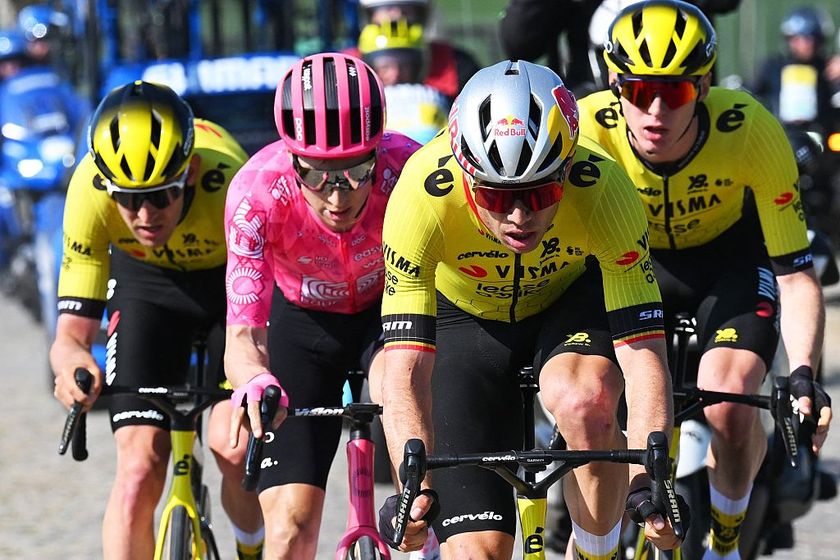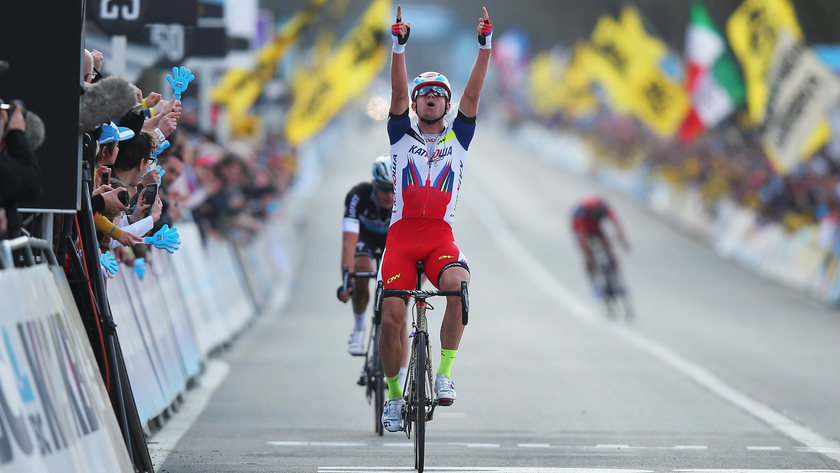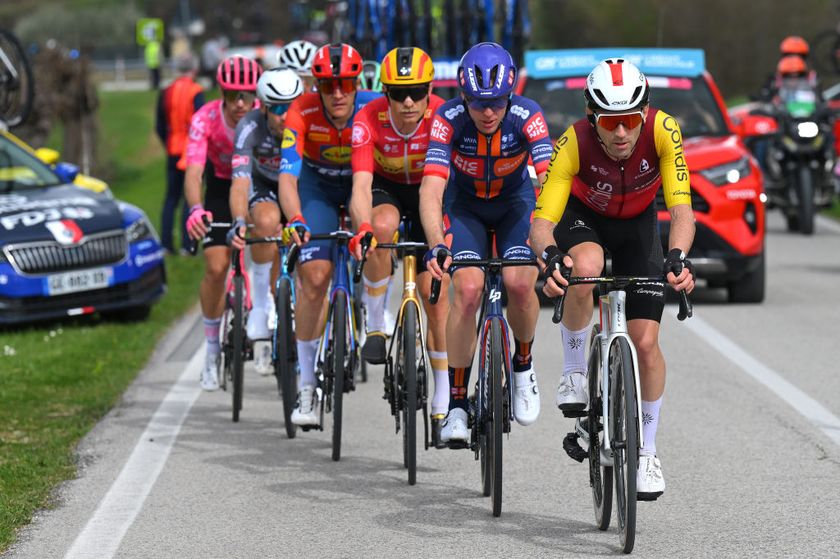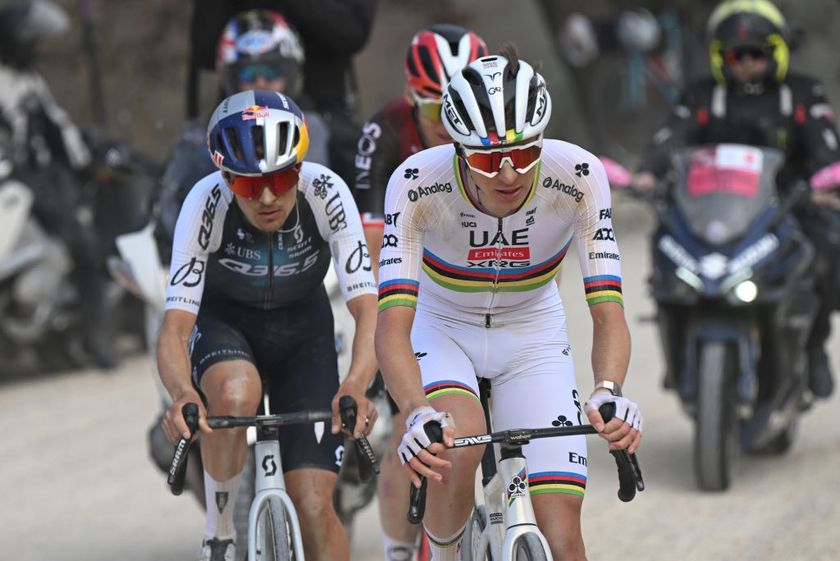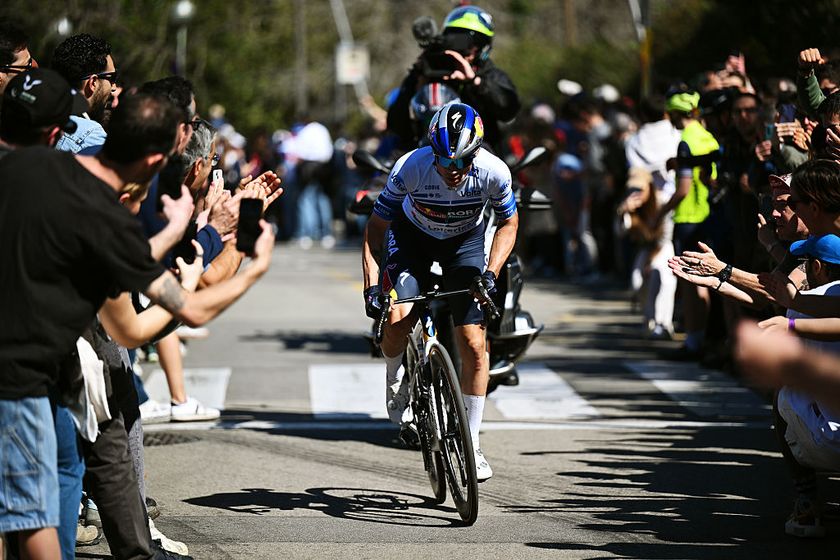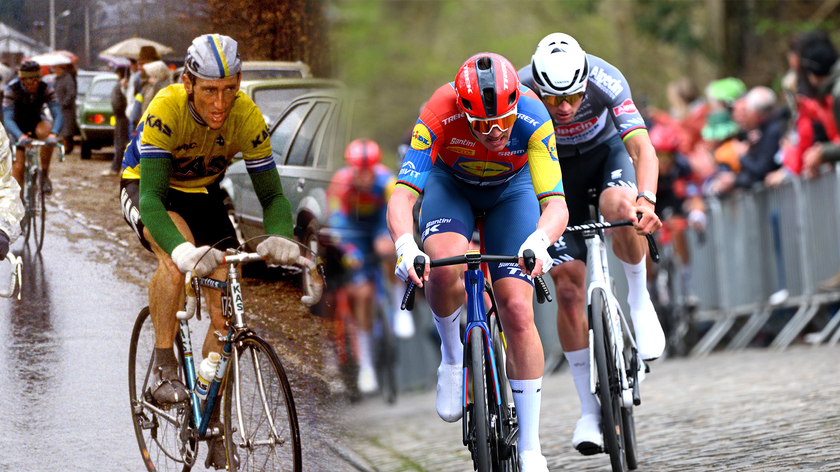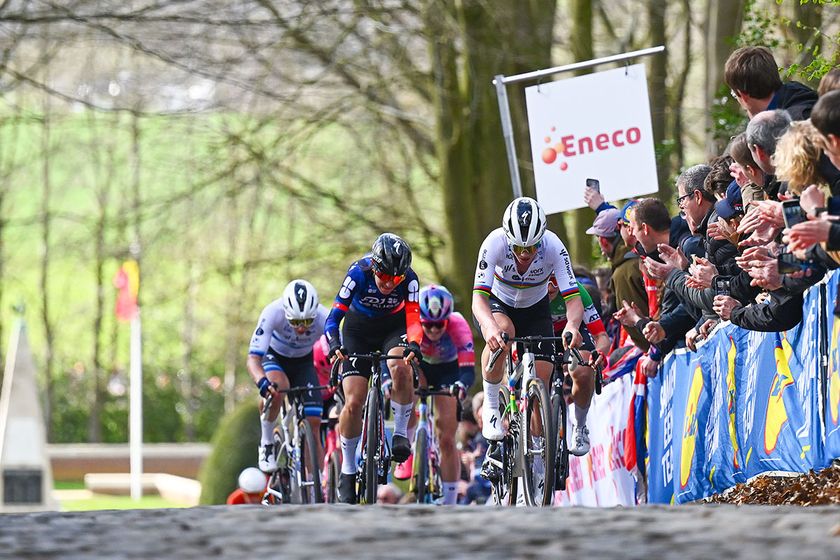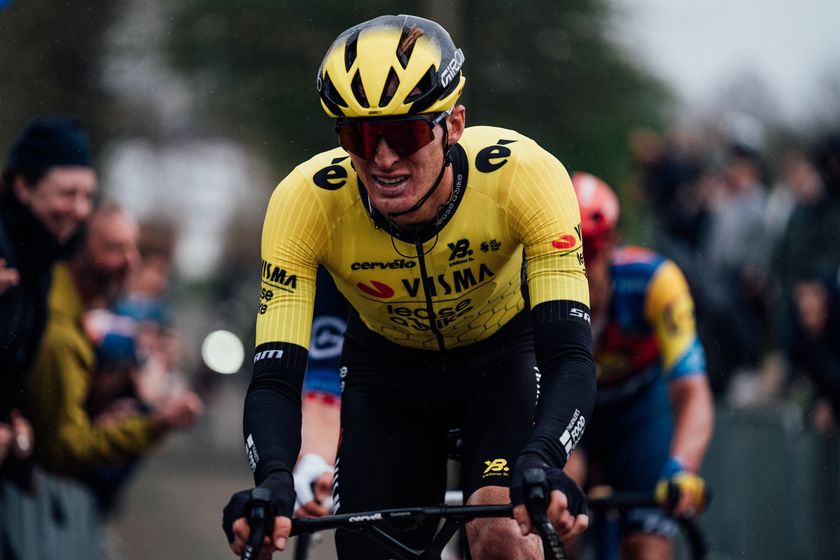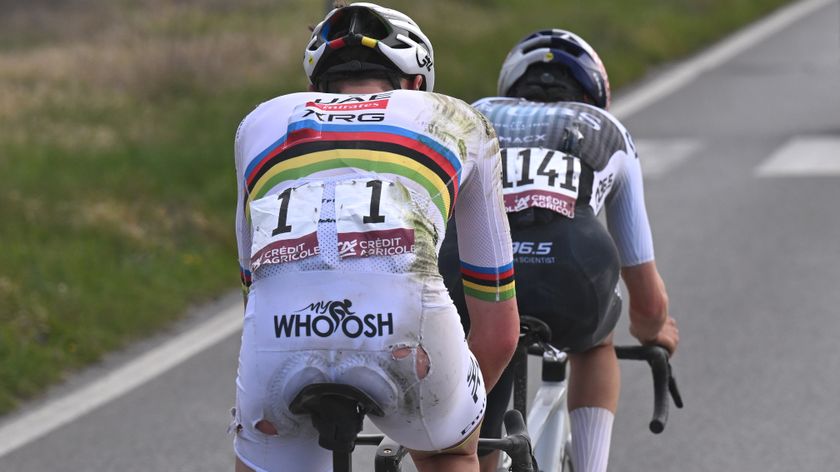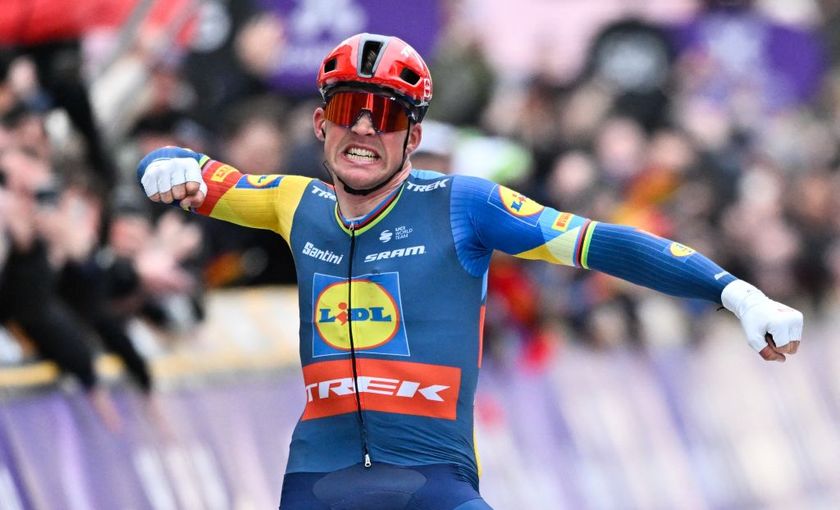Fitness questions and answers for July 3, 2007
Got a question about fitness, training, recovery from injury or a related subject? Drop us a line at...
Form & Fitness Q & A
Got a question about fitness, training, recovery from injury or a related subject? Drop us a line at fitness@cyclingnews.com. Please include as much information about yourself as possible, including your age, sex, and type of racing or riding. Due to the volume of questions we receive, we regret that we are unable to answer them all.
Carrie Cheadle, MA (www.carriecheadle.com) is a Sports Psychology consultant who has dedicated her career to helping athletes of all ages and abilities perform to their potential. Carrie specialises in working with cyclists, in disciplines ranging from track racing to mountain biking. She holds a bachelors degree in Psychology from Sonoma State University as well as a masters degree in Sport Psychology from John F. Kennedy University.
Dave Palese (www.davepalese.com) is a USA Cycling licensed coach and masters' class road racer with 16 years' race experience. He coaches racers and riders of all abilities from his home in southern Maine, USA, where he lives with his wife Sheryl, daughter Molly, and two cats, Miranda and Mu-Mu.
Kelby Bethards, MD received a Bachelor of Science in Electrical Engineering from Iowa State University (1994) before obtaining an M.D. from the University of Iowa College of Medicine in 2000. Has been a racing cyclist 'on and off' for 20 years, and when time allows, he races Cat 3 and 35+. He is a team physician for two local Ft Collins, CO, teams, and currently works Family Practice in multiple settings: rural, urgent care, inpatient and the like.
Fiona Lockhart (www.trainright.com) is a USA Cycling Expert Coach, and holds certifications from USA Weightlifting (Sports Performance Coach), the National Strength and Conditioning Association (Certified Strength and Conditioning Coach), and the National Academy for Sports Nutrition (Primary Sports Nutritionist). She is the Sports Science Editor for Carmichael Training Systems, and has been working in the strength and conditioning and endurance sports fields for over 10 years; she's also a competitive mountain biker.
Eddie Monnier (www.velo-fit.com) is a USA Cycling certified Elite Coach and a Category II racer. He holds undergraduate degrees in anthropology (with departmental honors) and philosophy from Emory University and an MBA from The Wharton School of Business.
Eddie is a proponent of training with power. He coaches cyclists (track, road and mountain bike) of all abilities and with wide ranging goals (with and without power meters). He uses internet tools to coach riders from any geography.
Get The Leadout Newsletter
The latest race content, interviews, features, reviews and expert buying guides, direct to your inbox!
David Fleckenstein, MPT (www.physiopt.com) is a physical therapist practicing in Boise, ID. His clients have included World and U.S. champions, Olympic athletes and numerous professional athletes. He received his B.S. in Biology/Genetics from Penn State and his Master's degree in Physical Therapy from Emory University. He specializes in manual medicine treatment and specific retraining of spine and joint stabilization musculature. He is a former Cat I road racer and Expert mountain biker.
Since 1986 Steve Hogg (www.cyclefitcentre.com) has owned and operated Pedal Pushers, a cycle shop specialising in rider positioning and custom bicycles. In that time he has positioned riders from all cycling disciplines and of all levels of ability with every concievable cycling problem.They include World and National champions at one end of the performance spectrum to amputees and people with disabilities at the other end.
Current riders that Steve has positioned include Davitamon-Lotto's Nick Gates, Discovery's Hayden Roulston, National Road Series champion, Jessica Ridder and National and State Time Trial champion, Peter Milostic.
Pamela Hinton has a bachelor's degree in Molecular Biology and a doctoral degree in Nutritional Sciences, both from the University of Wisconsin-Madison. She did postdoctoral training at Cornell University and is now an assistant professor of Nutritional Sciences at the University of Missouri-Columbia where she studies the effects of iron deficiency on adaptations to endurance training and the consequences of exercise-associated changes in menstrual function on bone health.
Pam was an All-American in track while at the UW. She started cycling competitively in 2003 and is the defending Missouri State Road Champion. Pam writes a nutrition column for Giana Roberge's Team Speed Queen Newsletter.
Dario Fredrick (www.wholeathlete.com) is an exercise physiologist and head coach for Whole Athlete™. He is a former category 1 & semi-pro MTB racer. Dario holds a masters degree in exercise science and a bachelors in sport psychology.
Scott Saifer (www.wenzelcoaching.com) has a Masters Degree in exercise physiology and sports psychology and has personally coached over 300 athletes of all levels in his 10 years of coaching with Wenzel Coaching.
Kendra Wenzel (www.wenzelcoaching.com) is a head coach with Wenzel Coaching with 17 years of racing and coaching experience and is coauthor of the book Bike Racing 101.
Steve Owens (www.coloradopremiertraining.com) is a USA Cycling certified coach, exercise physiologist and owner of Colorado Premier Training. Steve has worked with both the United States Olympic Committee and Guatemalan Olympic Committee as an Exercise Physiologist. He holds a B.S. in Exercise & Sports Science and currently works with multiple national champions, professionals and World Cup level cyclists.
Through his highly customized online training format, Steve and his handpicked team of coaches at Colorado Premier Training work with cyclists and multisport athletes around the world.
Brett Aitken (www.cycle2max.com) is a Sydney Olympic gold medalist. Born in Adelaide, Australia in 1971, Brett got into cycling through the cult sport of cycle speedway before crossing over into road and track racing. Since winning Olympic gold in the Madison with Scott McGrory, Brett has been working on his coaching business and his www.cycle2max.com website.
Richard Stern (www.cyclecoach.com) is Head Coach of Richard Stern Training, a Level 3 Coach with the Association of British Cycling Coaches, a Sports Scientist, and a writer. He has been professionally coaching cyclists and triathletes since 1998 at all levels from professional to recreational. He is a leading expert in coaching with power output and all power meters. Richard has been a competitive cyclist for 20 years
Andy Bloomer (www.cyclecoach.com) is an Associate Coach and sport scientist with Richard Stern Training. He is a member of the Association of British Cycling Coaches (ABCC) and a member of the British Association of Sport and Exercise Sciences (BASES). In his role as Exercise Physiologist at Staffordshire University Sports Performance Centre, he has conducted physiological testing and offered training and coaching advice to athletes from all sports for the past 4 years. Andy has been a competitive cyclist for many years.
Michael Smartt (www.cyclecoach.com) is an Associate Coach with Richard Stern Training. He holds a Masters degree in exercise physiology and is USA Cycling Expert Coach. Michael has been a competitive cyclist for over 10 years and has experience coaching road and off-road cyclists, triathletes and Paralympians.
Kim Morrow (www.elitefitcoach.com) has competed as a Professional Cyclist and Triathlete, is a certified USA Cycling Elite Coach, a 4-time U.S. Masters National Road Race Champion, and a Fitness Professional.
Her coaching group, eliteFITcoach, is based out of the Southeastern United States, although they coach athletes across North America. Kim also owns MyEnduranceCoach.com, a resource for cyclists, multisport athletes & endurance coaches around the globe, specializing in helping cycling and multisport athletes find a coach.
Burning feet sensation
Varying crank lengths
Heart rate and fatigue
Sleeping problems
Numb toes for three weeks
Riding with an iPod
Burning feet sensation
I'm 30 year-old, male, and looking back to getting into riding more seriously (again). I don't ride very much now, but I'm hoping to start up again (the sooner the better, because I miss it!).
Previously when I rode, I was always plagued by very sore feet (road or MTB). It seems to me that the pain originates from the outsides of my feet, and slowly spreads to my arch and then entire foot. Eventually, my feet would go mostly numb and I could ride ok (not that that was a solution).
The pain usually would start within 2-3 miles, so something is obviously wrong. I've tried all kinds of shoes (Lake, Specialized, Sidi, Nike, and I currently have Sidi Geniuses) and all cleat placements I can think of. I currently have Look pedals as well, PP296 I believe.
I notice that my walking shoes always have wear on the outside heel, so that makes me think that I am pushing with the outside of my feet and heel when I walk. When I ride, I have a feeling that I am twisting my feet from mostly straight to more of a 'pigeon-toed' position. I have tried to minimize this by keeping my knees closer to the top tube. I did try some Dr. Scholl's gel inserts/heel cups and that did help by about 50 percent.
I'd like to get past this so I can start racing MTBs again and do some good road riding as well.
Thanks for your advice!
Chris Smith
Steve Hogg replies:
Do you have a callous underneath the 5th mtp joint (base joint of the small toe)? If you do and combined with your self description of pedalling technique, it is almost certain that you have a noticeable degree of forefoot varus.
Varying crank lengths
I have two bikes - one I commute on and one that I ride/race mainly on weekends. They are very similar bikes - same brand, same setup - just from different ends of the weight & price scale. The 'commuter' has 175mm cranks and the other has 172.5mm cranks. I guess I have three questions:
1. Am I likely to encounter any problems (knees, muscle memory etc) riding bikes with different crank lengths?
2. Will I get any benefits from riding a heavier bike with longer cranks when I get on my race bike with shorter cranks?
3. Depending on Q1 & Q2, should I look for a matching pair of cranks?
Cam
Steve Hogg replies:
Realistically, 2.5mm of crank length is something like 1.5% of an increase or decrease and shouldn't make a marked difference providing you use both bikes regularly enough to develop a motor pattern appropriate for each. For some people though, that isn't the case and the small increase or decrease in crank length makes a marked difference.
Heart rate and fatigue
Like Richard (Heart rate concerns), sometimes I wonder about my HR figures. I am a 47 year-old male, 173 cm and 65 kg. I've been a competitive cyclist for four years, was a smoker/drinker for 15 years before that and had a 17 years surfing career before discovering the high life. My weekly average is 260 km, including races when I normally average 158 bpm. After I wake up my rest HR is 42-45 and I have reached 193 MHR during a sprint - 195 MHR on an indoor trainer.
At the moment I can not get my HR higher than 166 bpm - sprinting. I am not reaching my top speed at the moment and I am finding hard to get motivated to get on the bike. Are these signs of fatigue, after a period of 10 months of training and racing? Or just the winter blues as I am in the southern hemisphere? Having some important events coming up in the next two months, I have no time for a proper break. Is there anything else I could do to be prepared for those events?
AMR
Australia
Scott Saifer replies:
A heart rate that won't come within roughly 30 beats of a recent maximum is a sign of extreme fatigue, or a significant disease such as heart disease or hormonal problems. The lack of motivation suggests fatigue. The lack of top speed could be illness or fatigue. The problem could also be related to nutrition (do you get enough carbohydrate?), electrolytes or several other factors. If you've recently changed your diet or lost weight, increase your caloric intake. If you restrict salt in your diet and don't have high blood pressure, start eating more salt.
Sleeping problems
I'm a veteran rider. In stage races I find it difficult to get sleep at night as I find myself too hyped up. The spokes just keep on turning in my head and I even get scared. This has been a bad problem for me already 18 years ago in the Tour of Tasmania. I resorted to sleep tablets but even this often failed to knock me over and beside that it does not provide relaxing sleep.
Do you know of riders with the same problem or do you have other good advice (besides sending me back to the looney bin)?
Thanks in advance
Eugen Schilter
Sydney, Australia
Carrie Cheadle replies:
I've seen this with many athletes. Either the night before a race or in the middle of a stage race, your head hits the pillow and the wheels in your mind just start spinning and they don't stop. Problem is, you'll be so exhausted from spinning all night, that you won't be able to spin the next day!
Numb toes for three weeks
I have been riding for 10 years, somewhere between 3,000 and 5,000+ miles per year, and experienced some brief toe numbness on occasion while riding. This sensation has always disappeared nearly immediately after riding until three weeks ago.
Three weeks ago - and just four days after completing a 400 mile, four day ride from Ottawa, ON to Kennebunkport, ME, my big toes went numb in the toenail and toe-end area, especially towards the inside of the foot. This sensation has persisted now for three weeks.
I have had two good massages, which have helped the problem, as well as an examination by a doctor who performs EMGs. The massage therapist was able to work out a lot of muscle cramps, and hit some nerve ends in my feet that nearly blew me off the massage table. The doctor squeezed between my big and index tow and I nearly knocked us both off our chairs with reflex.
The doctor thinks my shoes (specifically dress shoes) as well as riding (perhaps cleat placement and time in saddle) are causing the problem. I wear lots of dress loafers at work (not my favourite) and Sidi Genus 4s with Speedplays centered under ball of foot while riding.
After taking two weeks off from riding, I expected more recovery. I am looking for directions to take to diagnose or alleviate.
I am a 35 year old male, 220lb, 6'1" rider riding a Litespeed Vortex (only two times , ~80mi since issue began - but specifically for the first time the day before symptoms began) and a Ritchey Breakaway (nearly all rides for past 1,000mi).
The Breakaway is definitely more comfortable (steel, higher bars) than the Litespeed (lower bars, shorter wheelbase, same top tube.) At my larger size, I am not much of a racer, more of a 'very fast' club rider.
Any thoughts are appreciated!
Scott Goodfellow
Steve Hogg replies:
Have a look at these posts and cleat and ball position and position your cleats accordingly. There is a 50% chance that this won't be possible with Speedplays. If not, order Speedplay part no. 13330 which will allow you to move your cleats back further.
Riding with an iPod
I've ridden with an iPod for the past year, using it on approximately 75% of my rides, and just about every intense workout ride. I feel it's not inappropriate on the roads I use; I am very good at staying on the right side of the road...But that's not the issue...
In races often I just don't feel I can motivate myself to push to the hardest of my ability. It's almost like a blockage in the path between my brain and my legs; only a portion of my intended power is expressed. I cannot quantifiably say this is the case, only subjectively.
Recently in a race I felt like as I sang a song in my head, I could push a bit harder. I've convinced myself that I may have "conditioned" my body to only push hardest under the influence of music, and have decided against using the iPod again in training, which, no matter what, is probably a good thing anyway. So, is this "conditioning" possible?
GW
California, USA
Scott Saifer replies:
What an interesting experience. Yes, what you describe is possible. Stop training with the iPod and see if/how that affects your racing after a few weeks. Then you'll know.
Carrie Cheadle adds:
As you already know, there are a lot of different factors that could contribute to not being able to push yourself in a race. However, if you almost always train with your iPod and suddenly you take that stimulus away, it's possible that you could condition yourself to not pushing as hard when the stimulus is removed.
